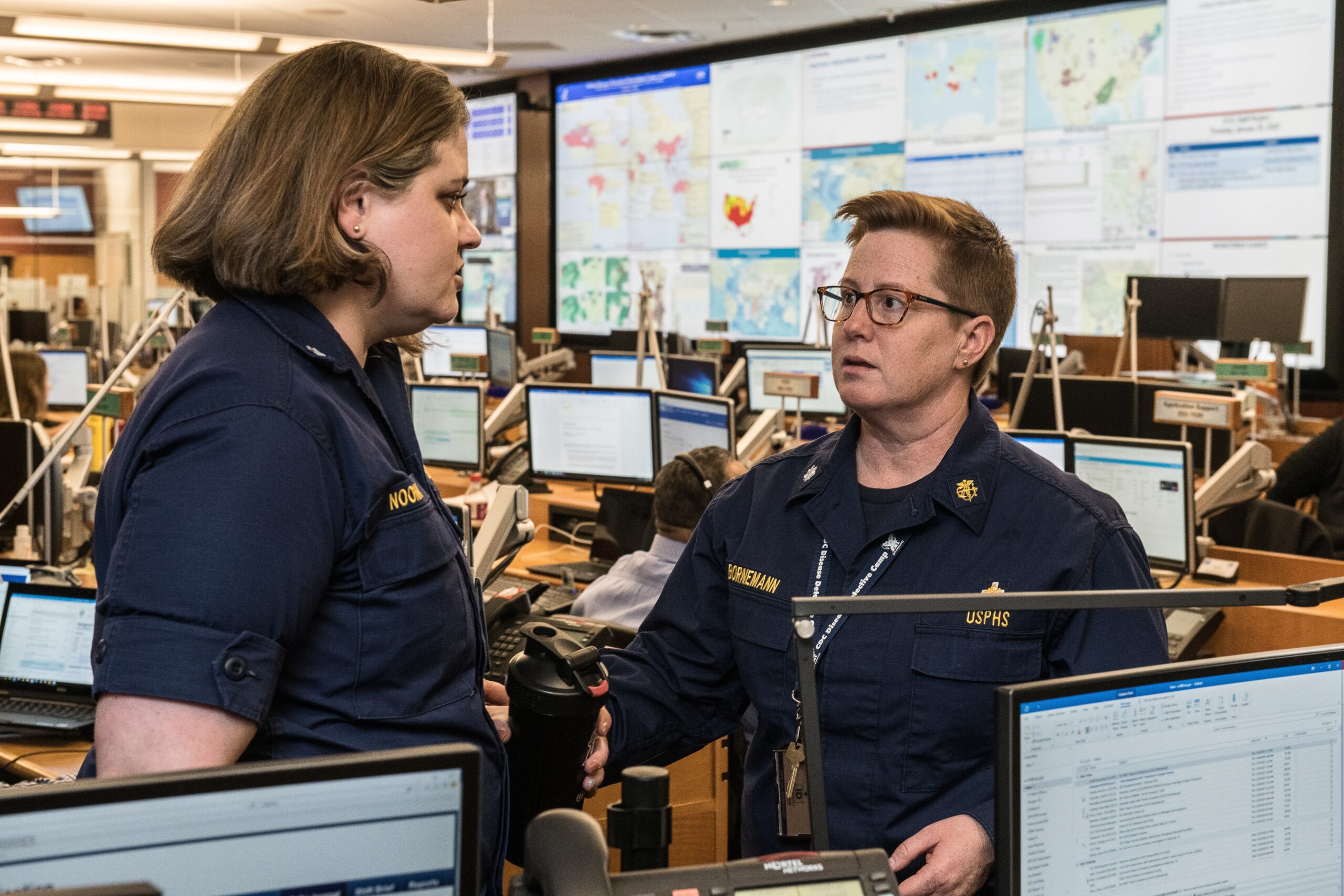Contact tracing in the US is at a critical inflection point. In the early days when COVID-19 first arrived in the US, when federal resources should have been mobilized to bolster our defenses against the virus, the response to the emerging pandemic became a political fight, rather than a public health campaign. The Trump Administration’s unwillingness to publicly acknowledge the seriousness of the virus and to respond quickly in an organized, systematic way allowed infections to run amok across the country. Despite over 8 million cases, 225,000 deaths, and an outbreak striking the White House and Congress, pandemic response efforts continue to be politicized. In the absence of federal leadership, states have been playing catch up since day one with little to no resources at their disposal.
The experience of other countries that flattened the curve of the coronavirus clearly demonstrates that contact tracing must be a fundamental part of any comprehensive program to curb the spread, whether cases are increasing or decreasing. Without testing and contact tracing, the country is flying blind to the spread of a deadly virus, leaving the nation’s local economies with few other options but to shut down once again. As we learned early on with COVID-19, a total shutdown imposes enormous financial, physical and emotional costs on the country and is an economically unsustainable strategy for the long term. In short, we simply can’t afford to do that again. Enabling society to carry on as safely as possible in lieu of a vaccine requires extensive testing and contact tracing to track the spread of the disease and to isolate and provide support to those who test positive.
In the absence of a federal contact tracing program or strategy, state and local public health departments were left to stand up contact tracing programs on their own. While there have been some successes, the vast majority of these programs have struggled to reach their intended goals, and the virus is surging once again across the country. The failure of most COVID-19 contact tracing efforts to achieve their potential stems from numerous reasons, including states’ and counties’ inability to rapidly increase staffing, limited funding, and staff burnout and turnover. These barriers have left contact tracing teams understaffed and under-resourced, unable to do their jobs effectively and keep up with the spread of the virus, especially when surges or spikes emerge.
Beyond these challenges, the strong desire to hire local residents to do contract tracing has presented its own set of problems. The logic for doing so, however, is sound and well-intentioned. These individuals are more likely to have the cultural understanding and local knowledge necessary to relate to contacts on a personal level and make them more comfortable with sharing information. They are also likely to be more knowledgeable about nearby resources their contacts may need, which helps to build trust. Many public health departments across the country have built a core group of contact tracers using local workers, and these core groups have played an integral role in keeping these programs running, regardless of the challenges they have faced.
The problem with this model, however, is that the virus tends to come in waves, and when it does it spreads like wildfire. A program may be adequately supported by a small core group of locals when the case count is low, but if there is a surge in cases that the core team can’t keep up with, they will need to scale up quickly and bring on more staff. In that moment, a program’s ability to hire locals is entirely dependent on the preexisting presence of a readily available and qualified workforce. Further, it can take weeks or months to recruit, hire, onboard, and train new staff members, which is an eternity when a highly infectious disease is spreading across local communities.
On top of that, COVID-19 contact tracing is a high turnover profession, particularly when the case count is overwhelming. As local teams attempt to scale, they may run into hurdles as some staff members leave shortly after coming on board, wasting all the time and resources put into hiring them. Combined, these challenges create the perfect storm for a run-away virus and a contact tracing program that fails to gain control of the new outbreak.
To enable local contact tracing teams to be more successful in the face of new COVID-19 outbreaks, the United States needs a national corps of contact tracers that can act as support for local teams in need of surge staffing. This national corps could rapidly deploy, either remotely or in person, experienced contact tracers to different high-need communities across the country where positivity and infection rates are surging. It would function similar to a reserve corps of soldiers in the military, ready to deploy on a moment’s notice to serve in support of local teams in need of serious help.
The goal is to assist the local team in gaining control of the virus before it gets out of hand, or at least to keep up with the rising case load while local candidates are recruited, hired and trained on the back end. The national corps members could serve for as long as is necessary to get local candidates in place. In the best case scenario, the national team may be able to help the local team contain the spread of COVID-19 without the need to hire additional staff. Over time, the national team can scale back and phase out to support other communities in need.
At the end of the day, local tracers who come from and understand the communities they serve are critical to the success of contact tracing programs. Without them, these programs will likely be less effective. For this reason, a national team simply cannot replace locals. However, with support from an experienced national contact tracing team, the country’s local health departments would be able to respond to outbreaks more quickly, supporting timelier public health interventions and ultimately saving more lives. Without this infrastructure in place, our nation stands little chance against the deadly winter that awaits us, and COVID-19 will continue to rule our lives until a vaccine is widely available.



Photo by: CDC
